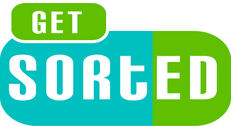SORTED Guide to Sustainability in Further Education – Part 3 - Teaching, learning and curriculum – 3.1 Introduction to the topic area
Introduction to the topic area
Education for sustainable development mirrors the drive for high quality education. It:
- Is interdisciplinary and holistic: learning for sustainable development embedded in the whole curriculum, not as a separate subject.
- Is values-driven: sharing the values and principles underpinning sustainable development.
- Includes critical thinking and problem solving: leading to confidence in addressing the dilemmas and challenges of sustainable development.
- Includes many methods: word, art, drama, debate, experience, and different pedagogies which model the processes.
- Includes participatory decision-making: learners participate in decisions on how they are to learn.
- Is locally relevant: addressing local as well as global issues, and using the language(s) that learners most commonly use.
In 2013, a large research study was undertaken by the Learning and Skills Improvement Service (LSIS) – Embedding Sustainability into Teaching, Learning and the Curriculum in the learning and skills sector, to explore what sustainability means in the FE sector; how it is being embedded and where; what skills are required; what barriers there are; and to draw together key resources and effective practice.
The LSIS research revealed that there is no ‘one-way’ to embed sustainability in teaching, learning and the curriculum, with a number of approaches identified across the sector:
- Adding topics to lessons in an opportunistic manner.
- A planned approach to include the topic as part of lessons.
- Adoption of different pedagogies, creating a different way of working, learning and enabling the learner to understand themselves and the world.
- A requirement specified by the awarding body as part of the curriculum.
- Some programmes already focus on sustainability.
- An additional or dedicated programme or course is developed and offered.
- Sustainability is included without being recognised as ‘sustainability’.
- Exposing learners to sustainability through themed weeks such as Climate Change Week and Fairtrade Fortnight.
- A combination of the above.
Amalgamating academic and specialist reports, and following discussion within the FE sector, the key generic competences, sustainability competences, and sustainability topics that are needed by learners to be fully empowered to contribute to shaping a positive future have been honed to the following:
Generic competences:
- Critical thinking and independent enquiry
- Self-management
- Effective participation (and listening)
- Team working
- Reflective learning
- Creative thinking.
Key sustainability competences:
- Connections and interdependences (systems thinking)
- Visioning and looking forward
- Empathy and engaging with others
- Ethics and values
- Action-orientated and change agent skills
- Coping with complexity and uncertainty.
Key sustainability topics:
- Climate change
- Power and democracy
- Human and earth rights education
- Community resilience and disaster risk reduction
- Environment and ecosystems
- Development education
- Consumer education.
Facilitated by pedagogies which make the curriculum come alive.
These can be intertwined into curriculum and teaching, as is relevant to the programme. Staff need an understanding of each element, the first “generic competences” are already mapped into curriculum programmes.





 Except where otherwise stated, content on this site is
licensed under a Creative Commons Attribution 3.0 License.
Except where otherwise stated, content on this site is
licensed under a Creative Commons Attribution 3.0 License.
